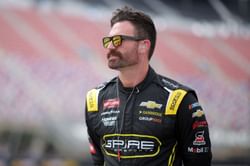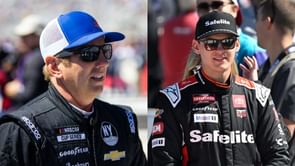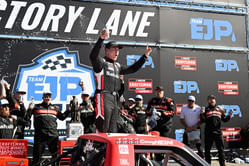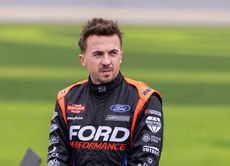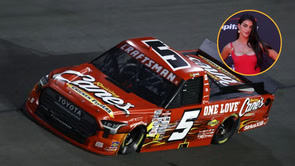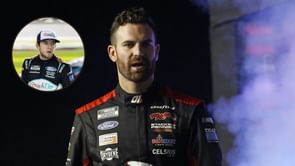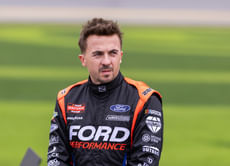NASCAR Truck Series
About NASCAR Truck Series

The NASCAR Truck Series officially known as the NASCAR Craftsman Truck Series, is the third-tier stock car racing division run in the United States, organized by the National Association for Stock Car Auto Racing. The series debuted in 1995, introducing pickup trucks into the NASCAR circuit, and giving American motorsports some much-needed variety. Originally called the NASCAR SuperTruck Series, it soon became the Craftsman Truck Series, remaining under that sponsorship from 1996 to 2008. Through several series name changes for sponsorship, including the Camping World Truck Series and the Gander Outdoors Truck Series, Craftsman regained naming rights in 2023.
The Truck Series stands out for its unique identity, a mix of speed, physicality, and short-track racing. Its events are a lot shorter than in the Cup or Xfinity Series and at the same time remain ultra-competitive, often a proving ground for both young drivers and seasoned veterans. The Truck Series carries a lot of historic weight, being one of NASCAR's many attempts to diversify its racing platforms. There is a point system to determine the championship winner, with an additional playoff format featuring top drivers contending through the last rounds of the season to decide the champion.
As of 2024, Like its sister series, the Truck Series has expanded its reach beyond traditional stock car strongholds, often visiting tracks all over the continental United States and even a stop in Canada. The Touring Series is known for tight, hard-nosed racing with specially designed trucks that resemble consumer pickup trucks. While the vehicles are capable of high speeds, they truly focus on driver talent and handling skills, adding to the series’s reputation as a challenging and entertaining motorsport division.
NASCAR Truck Series Format
The format of the races in the NASCAR Craftsman Truck Series is similar to that of the NASCAR Cup Series but unique.
Race Length and Laps
Starting with the length, the series races are quite different because most depend on the size and location of the track where the competition is held; this series focuses more on having rather short and full-of-action races. For instance, races in some small tracks like Martinsville Speedway can be over 250 laps, while on big tracks like Daytona International Speedways, the races are about 100 laps. This variance adds to the strategic complexity and excitement of each event.
Stages
Truck Series races are divided into three stages to enhance competition and introduce strategic elements.
Stage 1 and Stage 2 have a set number of laps, with bonus points for the leader at the end of each stage.
The final stage goes to the checkered flag, where the winner of the race receives the most points.
The format with stages brings multiple opportunities within the race for drivers to earn valuable points for consistency and race-winning ability.
Points System and Playoffs
The Truck Series also uses a similar points system to the Cup Series. That will mean 40 points to the winner of a race, 35 points for second place, and then a reduction in the points as it goes through the positions. Again, stage winners get extra points, adding to the overall championship standings. This playoff system is devised to bring fans the thrill of a championship chase, as 10 drivers qualify for the playoffs at the end of the regular season, according to points standings. These drivers advance to multiple elimination-style playoffs, culminating in a Championship 4 race to determine the series champion.
Qualifying
For NASCAR Truck Series races is one way to determine starting positions for drivers, using the results of practice or other on-track qualifying methods to decide who will start from what position. The polesitter goes to the fastest qualifier. This can be affected by penalties taken from practice or team owner points. This format allows for competitiveness in the racing environment and is unpredictable, where driver skill and strategy reign supreme.
NASCAR Truck Series Points System
Race Points
Drivers receive points based on their finishing position. It ensures that a driver grabs maximum points for a race while others collect fewer points based on their finish sequencing. Further, there was a provision for stage points where drivers finishing in the top 10 in each stage were awarded bonus points. This kind of format allows drivers to gather more points in races where they may not necessarily take the win, which will enable them to be aggressive throughout each stage.
Playoff points
They are gained throughout the regular season and come in handy during the playoffs. It's added onto a driver's total at the beginning of the postseason, thus giving those with more playoff points an advantage in the elimination rounds. This format also provides an extra layer of strategic depth, as drivers will be looking to gain as many playoff points as possible heading into the playoffs.
Standings Impact
Points earned during the regular season carry 10 drivers into the Truck Series playoffs. Those accumulated playoff points, once in the playoffs, will help drivers work their way through the elimination rounds. The more playoff points a driver has, the greater their advantage in being able to afford setbacks during races, with their points buffer perhaps protecting them from elimination or failing to advance to the next round. The playoff system ensures that it's important to win stages and races, but several consistent finishes throughout the year can keep drivers competitive in the standings.
Playoff points
They are crucial in tight battles most notably as the season nears its conclusion. This element of keeping stage finishes and race wins in their back pocket can easily transfer over to the playoff portion and make those crucial pieces of the puzzle in a championship chase.
NASCAR Truck Series Schedule
The NASCAR Craftsman Truck Series has 23 races across the season, with drivers trying to fight for points and playoff positions at a variety of tracks throughout the U.S. The 2024 season began in February, carrying through to November with the most anticipated championship race. Each of these regular-season races allows the drivers to build important points toward the competitive environment building into the playoffs.
Regular Season
The regular season is the most significant part of the races where drivers earn points based on their finishing positions in each event. This series has versatility for drivers and their trucks, with tracks that go from superspeedways to short tracks, including road courses. Famed tracks include Daytona International Speedway and Bristol Motor Speedway, which cater to high action for fans. The drivers look to gain enough points and win during the streak to put themselves in the playoffs for the Truck Series, which has greater stakes.
Christian Eckes claimed the 2024 Regular Season championship in the NASCAR Cup Series in 2024.
Read More About: NASCAR Truck Series Schedule
NASCAR Truck Series Playoff Schedule
The Truck Series playoffs, starting late in the summer, consist of three elimination rounds. At the end of each round, the number of playoff drivers decreases, raising the stakes as drivers compete for the championship. First, the Round of 10 reduces the number to eight drivers, then the Round of 8 narrows it further, and the final four drivers will race in the last championship race.
Round of 10
Sunday, Aug. 25 - The Milwaukee Mile
Thursday, Sept. 19 - Bristol Motor Speedway
Friday, Sept. 27 - Kansas Speedway
Round of 8
Friday, Oct. 4 - Talladega Superspeedway
Saturday, Oct. 26 - Homestead-Miami Speedway
- Friday, Nov. 1 - Martinsville Speedway
Championship Race
Friday, Nov. 8 - Phoenix Raceway
The Championship 4 drivers compete in the final race of the season at Phoenix Raceway, with the highest finisher among them crowned the 2024 NASCAR Craftsman Truck Series champion.
As of November 2024, Grant Enfinger, Christian Eckes, Corey Heim and Ty Majeski will be racin in the championship race to battle it out for the 2024 Truck Series title. Corey Heim is the defending champion and will be looking forward to another Truck Series title. The drivers are currently at 4000 points each.
NASCAR Truck Series Tracks and Venues
Iconic Tracks
Daytona International Speedway, The World Center of Racing in Daytona Beach, Florida, hosts the season-opening race for the NASCAR Truck Series, the NextEra Energy 250. The 2.5-mile superspeedway features high banking, creating a very well-conditioned environment for pack racing and close, thrilling finishes.
Talladega Superspeedway, Measuring 2.66 miles, this track in Talladega, Alabama is the longest on the NASCAR Truck Series docket. Unpredictable racing and multi-car crashes otherwise known as The Big One make Talladega a track that never disappoints when it comes to high-velocity action.
Bristol Motor Speedway, nicknamed The Last Great Colosseum, the half-mile short track in Bristol, Tennessee, is one of the most historic staples of the NASCAR Truck Series. Complete with steep banking and tight-quarter racing, it provides some of the most exciting and intense battles of the season.
Martinsville Speedway, located in Virginia, Martinsville Speedway is the oldest track in NASCAR and a paperclip-shaped half-mile track. The track is known for tight racing and technical turns, and precision and patience serve as keys to any sort of success on this track in the Truck Series.
Charlotte Motor Speedway, The North Carolina track hosts the North Carolina Education Lottery 200 in the NASCAR Truck Series at 1.5 miles of racing surface. The wide and fast configuration has made it a favorite among the drivers. It's also one of those races that gets much attention simply because it falls near the hub of NASCAR's operations.
Short Tracks
Bristol Motor Speedway, Bristol is known as the World's Fastest Half-Mile and has become synonymous with high-speed, tight-corner racing. The Truck Series races at Bristol are usually full of aggressive driving and exciting finishes.
Martinsville Speedway, measuring just a half mile in length, Martinsville is a technical short track that tests the skills of the drivers as they negotiate the flat, narrow corners. The Truck Series races at Martinsville are always highly competitive, with plenty of close-contact racing and multiple lead changes.
Speedways
While the Daytona 500 might be the crown jewel of the NASCAR Cup Series, for the Truck Series, February's NextEra Energy 250 at Daytona is similarly iconic. It's a superspeedway that has delivered a spate of thrilling finishes over the years, with its fair share of big upsets too.
Charlotte Motor Speedway for competitors and fans alike loves the wide and fast track of Charlotte as it provides ample opportunities to overtake, and it is one of the premium venues on the Truck Series calendar.
Talladega Superspeedway, yet another superspeedway, houses some of the highest-speed pack-style racing in the sport. The Truck Series races at the track are always one of the true wild cards and tend to have finishes that are always breathtaking.
Road Courses
Sonoma Raceway, For the NASCAR Truck Series drivers, the Sonoma Raceway is a unique challenge because it is a road course that requires precision and skill sets somewhat different from those employed on ovals. Being a fan favorite due to the beautiful scenic backdrop and technical layout of the track.
Watkins Glen International is a road course on the Truck Series docket fast, a technical corner that tests the skill of the wheelmen, offering a different type of excitement to that derived from the traditional oval track.
Read More About: NASCAR Race Tracks With Locations
List of NASCAR Truck Series Drivers
| Driver Name | Team |
| Ty Dillon | Rackley WAR |
| Daniel Dye | Champion Container |
| Christian Eckes | Napa |
| Grant Enfinger | Champion |
| Stewart Friesen | Halmar |
| Jake Garcia | Quanta |
| Tanner Gray | Dead on Tools |
| Taylor Gray | JBL |
| Corey Heim | Satellite |
| Timmy Hill | Cable Enterprises |
| Bret Holmes | David's Electric |
| Ty Majeski | Curb Records |
| Mason Massey | BRUNT |
| Keith McGee | More Core |
| Matt Mills | JF Electric |
| Thad Moffitt | South Point |
| Chase Purdy | Mama Buggies |
| Ben Rhodes | Menards |
| Layne Riggs | Loves RV Stop |
| Nick Sanchez | Gainbridge/Fastbreak |
| Dean Thompson | Thompson Pipe Group |
| Jack Wood | Instacoat |
List of NASCAR Truck Series Teams
| Team Name | Owner |
| Chevrolet Bret Holmes Racing | Bret Holmes |
| CR7 Motorsports | Grant Enfinger |
| Faction 46 | Thad Moffitt |
| Young's Motorsports | Tyler Young |
| Freedom Racing Enterprises | Spencer Boyd |
| McAnally-Hilgemann Racing | Mark Hillman |
| Niece Motorsports | Al Niece |
| Rackley WAR | Willie Allen |
| Rev Racing | Kevin Manion |
| Spire Motorsports | Spire Motorsports LLC |
| ThorSport Racing | Duke Thorsport |
| Front Row Motorsports | Bob Jenkins |
| Halmar Racing | Stewart Friesen |
| Hill Motorsports | Terry Elmore |
| Tricon Garage | Toni Breidinger |
Related:
NASCAR Truck Series Manufacturer Leaderboard NASCAR Truck Series Owner LeaderboardNASCAR Truck Series Championship RaceNASCAR Truck Series Drivers
FAQ's On NASCAR Truck Series
A. In the Truck Series, the winner of the final race in the Championship 4 takes home the championship title, regardless of points standings.
A. Truck Series races are typically broadcast on television networks such as FS1, NBC, and USA Network.
A. Truck Series races take place at various tracks across the United States. You can find the schedule and ticket information on the NASCAR website.
A. Many tracks offer fan events and activities, such as driver meet-and-greets, pit tours, and merchandise sales. Check the specific track's website for details.
A. NASCAR Truck Series is the third division of stock car racing handled by NASCAR.

